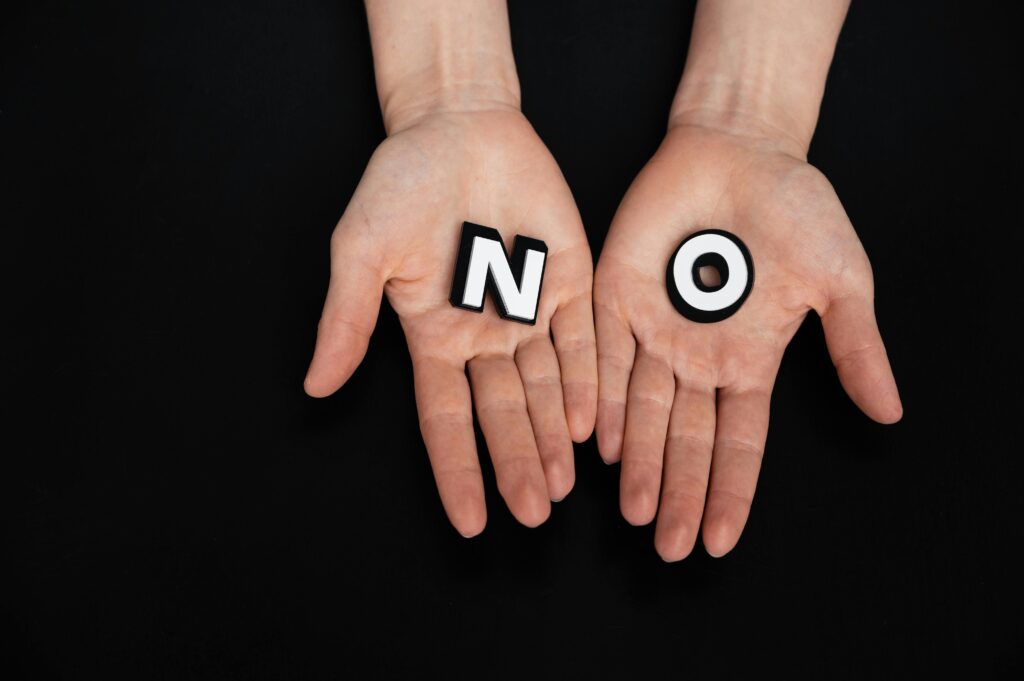
Introduction
Saying “no” can be one of the most powerful and liberating skills we can develop. In a world where we constantly demand time and energy, learning to say “no” effectively is essential to protecting our mental health and well-being. Here, we explore three essential types of “no” that everyone needs to learn to use to take care of their mental and emotional health.
1. The “I Don’t Want To” for Your Well-being
Sometimes, we simply don’t want to do something, and that’s okay. This “no” protects your interests and authenticity, allowing you to live according to your own desires and needs. You don’t need an elaborate reason to say “I don’t want to”; your desire, in this case, not wanting to, is reason enough.
To start, practice saying “I don’t want to” in everyday situations. Begin with small things and build your confidence for more important or complex situations. For example, if you say “I don’t want to” to a night out with friends and decide to stay home, you can benefit from having time to connect with yourself and recharge. This can improve your personal well-being and give you a sense of peace and satisfaction.
2. The “I Can’t” for Your Well-being
Protecting our energy, time, and resources is crucial, and “I can’t” is a way to do it. We can’t do everything, and it’s important to recognize our limitations. Saying “I can’t” helps us avoid burnout and focus on our priorities.
Evaluate your schedule weekly and identify areas where you can implement an “I can’t” to free up time for yourself. For example, if you say “I can’t” to take on an extra project at work, you can avoid burnout and dedicate more time to your personal projects and life goals. This ensures better performance quality and maintains a healthy balance between your work and personal life, allowing you to focus on what truly matters.
3. The “Not Now” for Your Well-being
The “not now” is a useful tool for managing commitments without sacrificing your well-being. This type of “no” communicates interest and seeks to create agreements for a moment that works better for you. It’s a way to maintain flexibility without compromising your time and energy.
Use the “not now” instead of committing immediately. Offer alternative times and keep the door open for future opportunities. For example, if you say “not now” to a meeting and propose another time, you can better manage your time and ensure that you are in the best mental state to participate actively. This benefits both you and the other participants, allowing for better focus and intentional productivity at a more suitable time.
Conclusion
Saying “no” doesn’t mean being selfish or inconsiderate towards others; it’s a way to prioritize your well-being and live according to your values. Incorporating these three types of “no” into your daily life can make a significant difference in your physical, emotional, and relational well-being. When you empower yourself with your “no,” you allow yourself to protect and prioritize what really matters. Which of these “no”s will you implement more in your life? Tell us in the comments!
Add a comment
0 Comments